Underfloor Heating systems are newly emerging heating systems making waves in the heating space. These systems present a lot of benefits to the user and the environment at large when compared to other heating systems. A major concern for the prospective user is the lifespan of these systems.
Electric underfloor heating systems have an average lifespan of 25years. Water Underfloor heating on the other hand has an average service life of about 50 years. For underfloor heating systems with boiler systems, the boiler would require replacing after 10-15 years.
Although, the heating system would require regular maintenance to achieve this. We will now consider the factors that affect the lifespan of each type of underfloor heating system.

What factors affect Water Underfloor Heating lifespan?
The following factors affect the lifespan of Electric Underfloor Heating:
Age/Wear and Tear
Like all equipment, they are all subject to wear and tear due to aging, even with the best maintenance practices. Water underfloor systems are not left out, they typically run non-stop for weeks, months, or even years. This factor alone reduces the lifespan of the system. After a while, various individual components(actuator, valves) tend to fail as time goes by. At this point, it’s just best to get a new heating system.
Poor Installation
Poor workmanship puts the water underfloor heating system in jeopardy even before the system starts operation. Water underfloor heating systems require some level of meticulousness during installation that certain technicians do not imbibe.
Hence before you decide to hire the services of a professional, kindly seek reviews from their previous clients. This is to ensure a smooth running operation of the system for a long time.
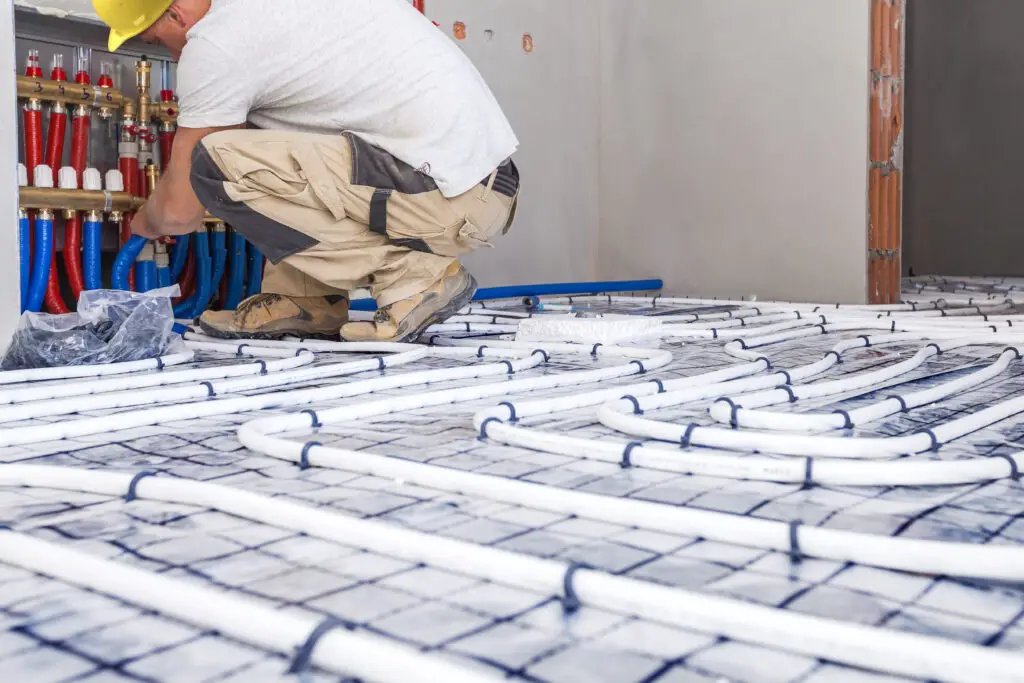
Poor Maintenance
Water underfloor heating requires the most amount of maintenance. Poor maintenance culture would severely affect the lifespan of the system. Most times, certain people service their underfloor heating systems annually, which is fine. But in some situations, several indicators would draw the owner’s attention that the system needs servicing.
For example, once the homeowner notices that the system makes a gurgling sound, or a vibrating noise when in operation; then the system is due for servicing. The cause of that noise in the system is the presence of air bubbles in the pipes. If left unattended, it could lead to cold spots across the floor surface.
Weather
In cold regions around the world, it is advised that whenever homeowner leaves the house for long periods, they should not completely switch off their heating system. Instead, they should leave it at the minimum attainable setting of the system. This is because these pipes get frozen under these cold temperatures. If this phenomenon continues to occur for prolonged periods, it could compromise the integrity of the pipes used.
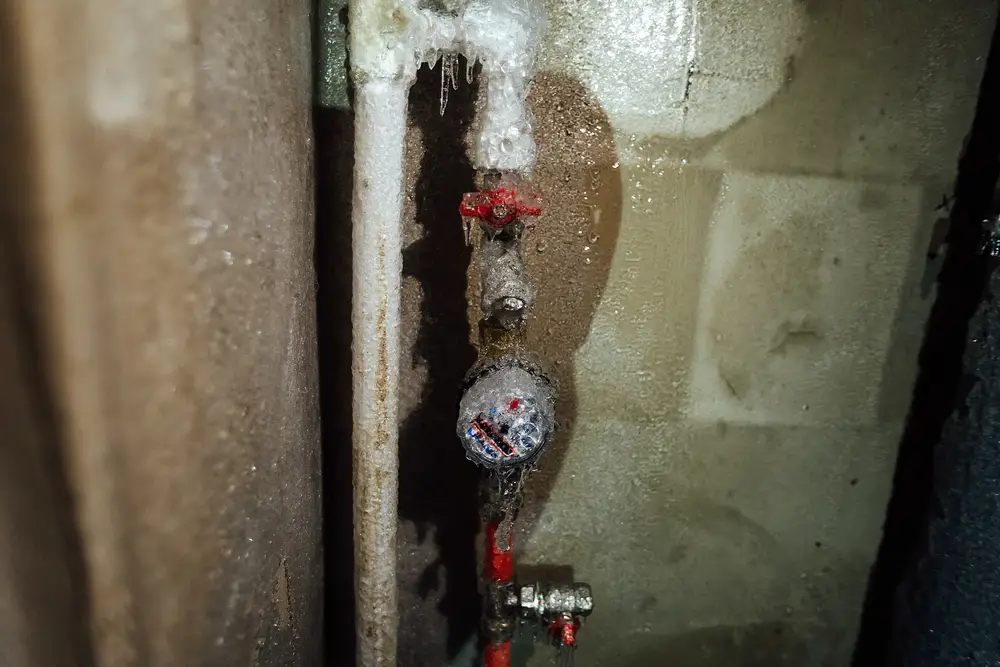
As the water in the pipes continues to freeze and melt interchangeably, the pipes begin to expand and contract also. In the long run, this freezing and unfreezing process could give room for potential leaks in the pipes. Consequentially, this puts the lifespan of the system at risk.
Subpar Installation Materials
Poor quality materials only shorten the lifespan of the system. Before you install your system, ensure that you do not cut corners on the quality of materials to use. For example, low-quality water pipes could lead to consistent issues with leaks. Therefore, high-quality materials would ensure the smooth running of your system at maximum efficiency for years to come.
What factors affect Electric Underfloor Heating lifespan
The following factors affect the lifespan of Electric Underfloor Heating:
Age/Wear and Tear
This is inevitable for all machines. As the system ages or completes various cycles of heating and cooling, the system’s efficiency begins to dwindle.
Poor Installation
Before you install electric underfloor systems, ensure you properly understand how it is done. Most electric underfloor systems are DIY systems, but there are some guides that must be adhered to when installing them. If these systems are poorly installed, it would rapidly degrade the lifespan of the system.
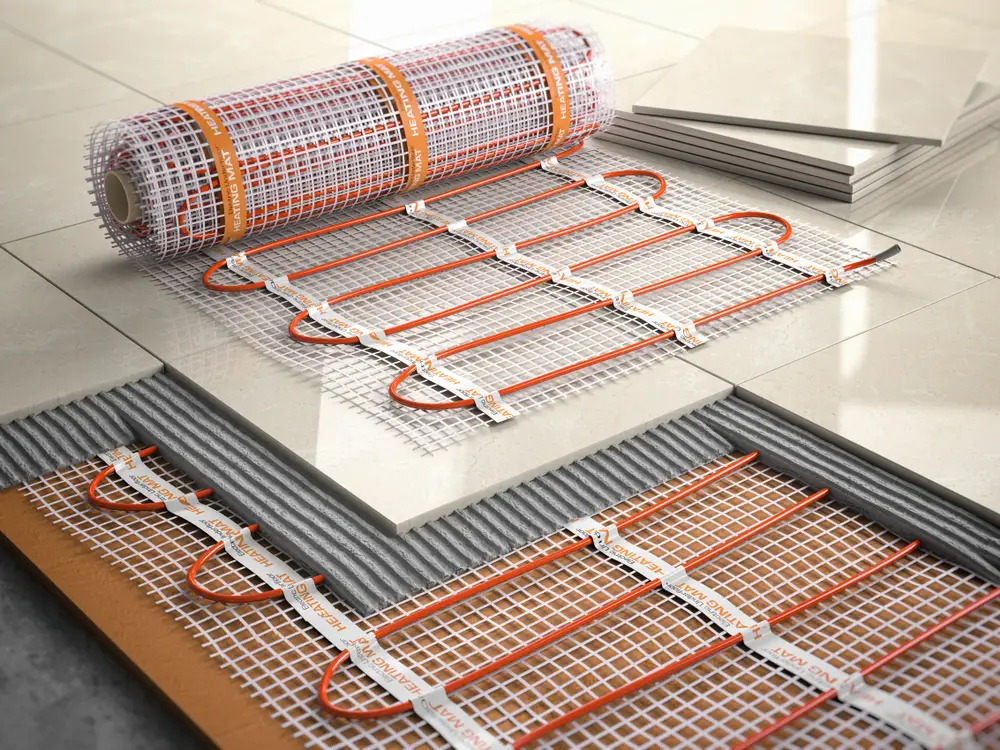
Subpar Materials
Low-quality materials limit the capabilities of the electric underfloor heating system to perform at its full capacity. The quality of wires used in the installation would determine how much current or voltage they can send to the heating elements. Also, the quality of wires determines how well the system can withstand fluctuations/surges from the power source.
When do you need to replace your Underfloor Heating?
There is no actual time frame on when to replace your underfloor heating. Generally, as these heating systems tend towards the end of their lifespan, they begin to exhibit certain behaviors that are not originally peculiar to them.
Some of this behavior may include weird noises while in operation, constant breakdown of the system, inability to reach maximum efficiency while working, and so on. Even after trying to fix the issues with them, the same issue pops up or a similar issue pops up. At this point, it would be best to discard the system before it becomes it puts someone’s life or property at risk.
How difficult is replacing Underfloor heating?
Replacing an underfloor heating system can range from being very quick and easy to be quite a hassle depending on the type you have installed.
Electric underfloor heating systems for example are very easy to replace. In an event of a fault across the heating element, the area affected is easily accessible. Also, the homeowner can easily replace the whole heating element, if the faulty section cannot be replaced without having to destroy the floor.
Water Underfloor heating systems are very hard to access. When a fault occurs in these systems, for example, a pipe leak, one cannot ascertain the gravity of the fault. Also, one cannot point out the exact location of the fault. Having to take off the entire floor is already a hassle and having to redo this tedious installation process only compounds the already tasking job at hand.
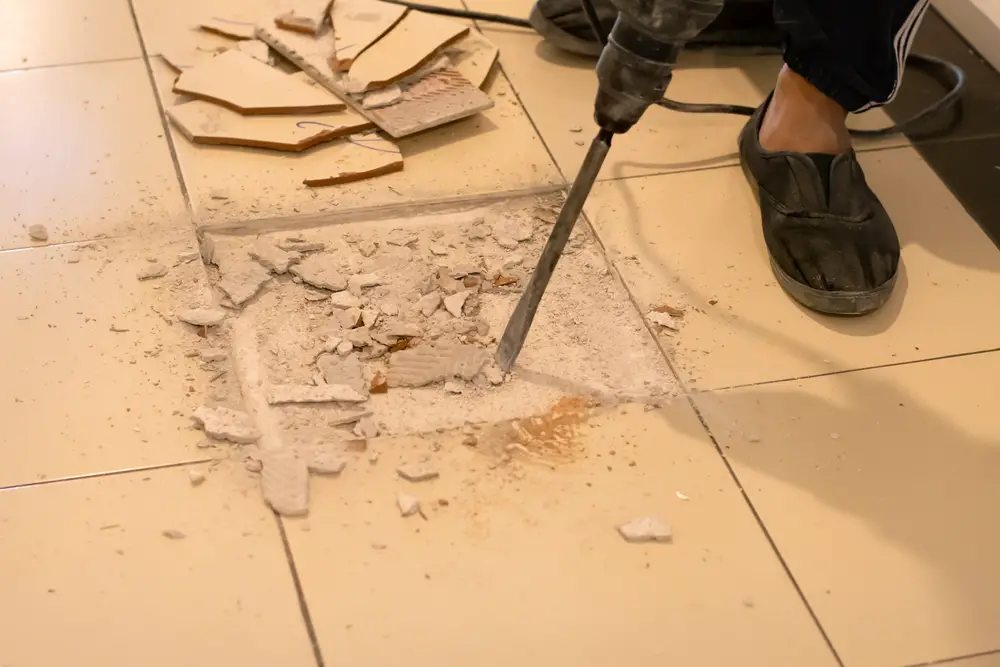
Poor installation or subpar Materials are also factors that may cause a continuous run of long-term problems with the system. This would also entail having to remove the original materials used in the installation, which is already a grueling task.
How often does underfloor heating need to be serviced? (water vs electric)
On average, Water underfloor heating systems should be serviced annually. This can be done by either the homeowner or by a professional. Some of the things to look out for when determining if your system is due for servicing:
The system’s pressure
You can observe the system’s pressure and ensure it’s between 1-2bars. You can make use of the pressure gauge on the manifold’s flow bar to confirm the system’s pressure. If it is below or above this range, kindly call your technician to come to check it out.
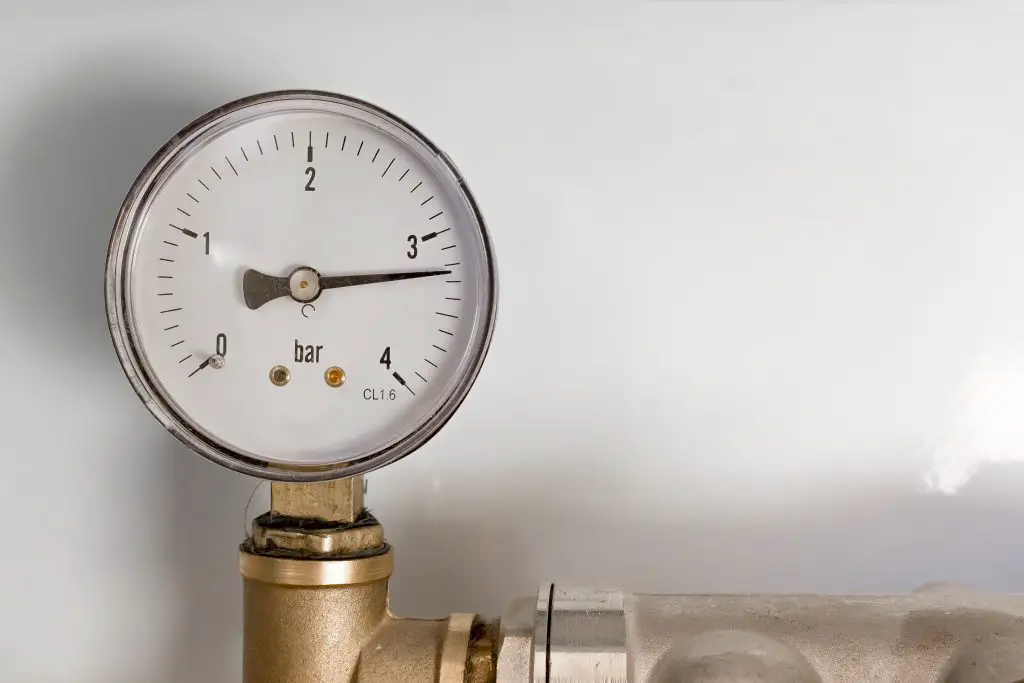
The color of the water
As time goes by, the color of the water in the pipes gets discolorated. The gets a little yellowish, which is okay. Although when you notice that the color change is more severe, then it’s best to flush the entire system. Also, you will need to add an inhibitor into the system after flushing it. This would help breakdown the agents that cause this discoloration and prevent them from blocking the flow of water
Air
While the system is in operation, you should expect a smooth humming sound from the heating system. But when this noise becomes louder than expected, like a gurgling sound, It means air is trapped in bubbles in the pipes. These air bubbles would need to be flushed out.
Electric underfloor heating systems do not require any form of maintenance. You just have to ensure that the system is well installed and you are good to go.
Therefore, if you require a system with no maintenance, electric systems are your best bet. The only problem with these systems is that, once a fault occurs, you would most likely have to change the entire system. These particular systems do not usually give glaring signs when they are on the brink of getting faulty, it just happens.
Summary of Key Points
Underfloor heating systems are very much durable and long-lasting. Although this is subject to proper installation and high-quality materials. Water underfloor heating systems can last for over 50+ years, while electric underfloor heating systems can stay for over 25+ years.
There is no time frame on how often we should carry out maintenance on these systems, but it is expected to be done at least annually. But as the system reaches the end of its service life, it is meant to be done more frequently. Unlike water underfloor systems, Electric underfloor systems require no maintenance. Their lifespan is majorly dependent on how well the system was installed.
Lots more Underfloor Heating Information Here
- What Depth is Required for Underfloor Heating?
- Turning on Underfloor Heating for the First Time – How Long to Wait?
- Can you lay Vinyl flooring over underfloor heating?
- Do Tiles Crack With Underfloor Heating?
- Can You Heat a Whole House With Underfloor Heating?
- Can You Have Underfloor Heating Upstairs?
- Will Underfloor Heating Raise My Floor? – Underfloor Heating Layers Explained
- Can I put furniture on top of underfloor heating?
- How Do I Know If My Underfloor Heating is Leaking?
- Can You Combine Underfloor Heating With a Ground Source Heat Pump?
- Is Underfloor Heating Safe?
- Does Underfloor Heating Add Value to a Property?
- Can you have Wooden Floors with Underfloor Heating?
- Can Underfloor Heating Cause a Fire?
- What temperature should Underfloor Heating be set at?
- Can I Put a Rug Over Underfloor Heating?
- How Long Does it Take for Underfloor Heating to Warm Up?
- Why is my Underfloor Heating Noisy?
- Why is my Underfloor Heating Patchy?
- How do I know if My Underfloor Heating is Working? – Common Problems & Fixes
- What can go wrong with underfloor heating?
- Can you Combine Underfloor Heating with an Air Source Heat Pump?
- Do you keep underfloor heating on all the time?
- Does Underfloor Heating work with Smart Thermostats?
- Kitchen Underfloor Heating – Should Underfloor Heating go Under Kitchen Units?
- How much energy does Underfloor Heating use?
- Underfloor Heating in Summer and Winter
- Lifespan of Underfloor Heating
